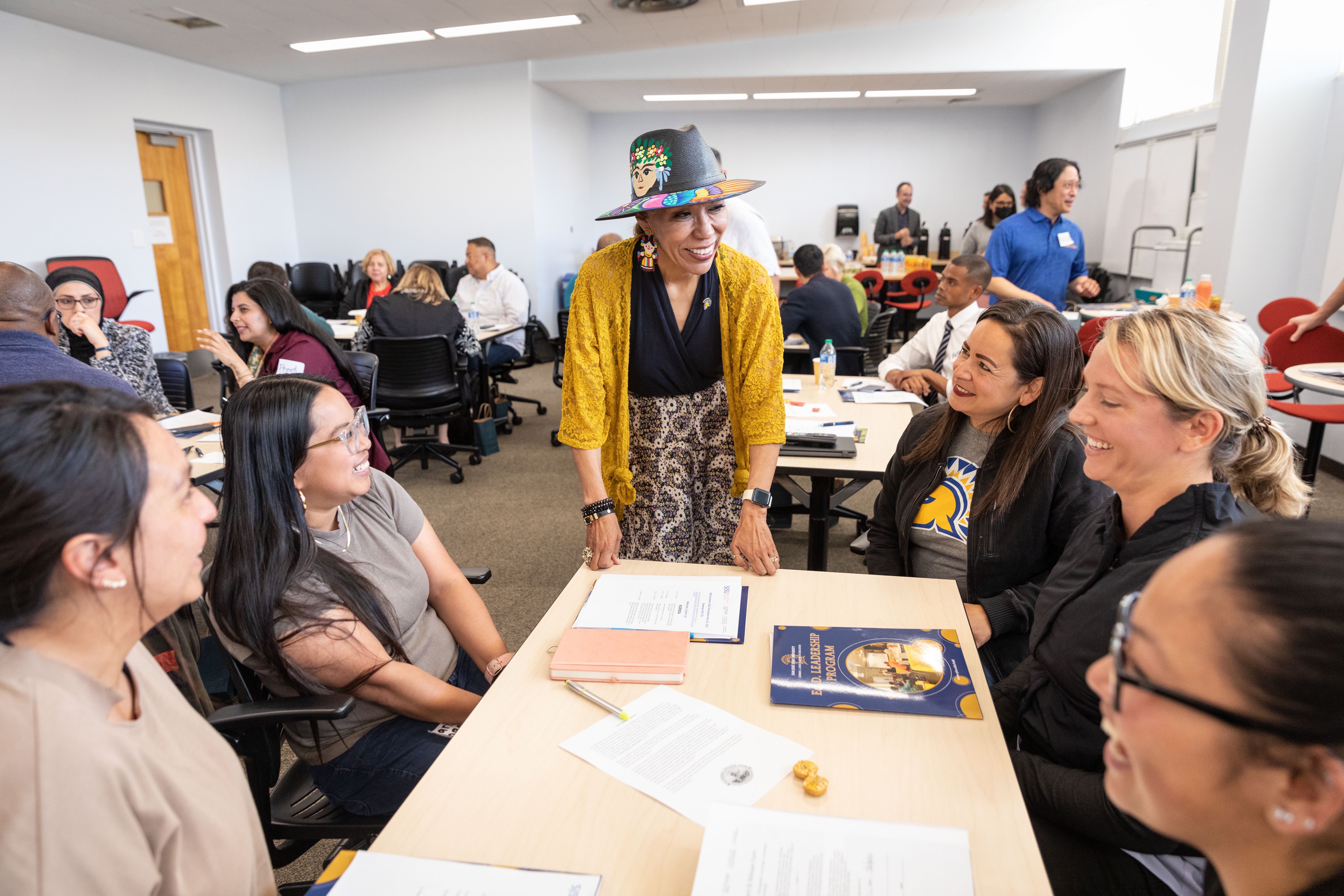The Dissertation

Students and core faculty in our Ed.D. Leadership Program are dedicated to studying problems of practice. During the third year of our program, all of our doctoral students are expected to complete and defend a "dissertation-in-practice."
For examples of completed SJSU Ed.D. dissertations, please follow the link below.
https://scholarworks.sjsu.edu/etd_dissertations/
Our Ed.D. graduates have completed original research focusing
on salient issues impacting schools, students, and communities across Silicon Valley,
California and global contexts.
All SJSU Ed.D. dissertations follow the College of Graduate Studies Thesis and Dissertation Guide. The link below provides the Google site that has been designed to provide students with all of the information they will need to know to complete their dissertation process for graduation. It includes the Thesis Guidelines, required forms, formatting rules, submission, fees for extra services provided by our non-profit partner, Montezuma Publishing, publication, policies, and resources. Click on each heading for complete information under the topic.
https://sites.google.com/sjsu.edu/thesisdissertationguide2021-22/thesis-and-dissertation-guide